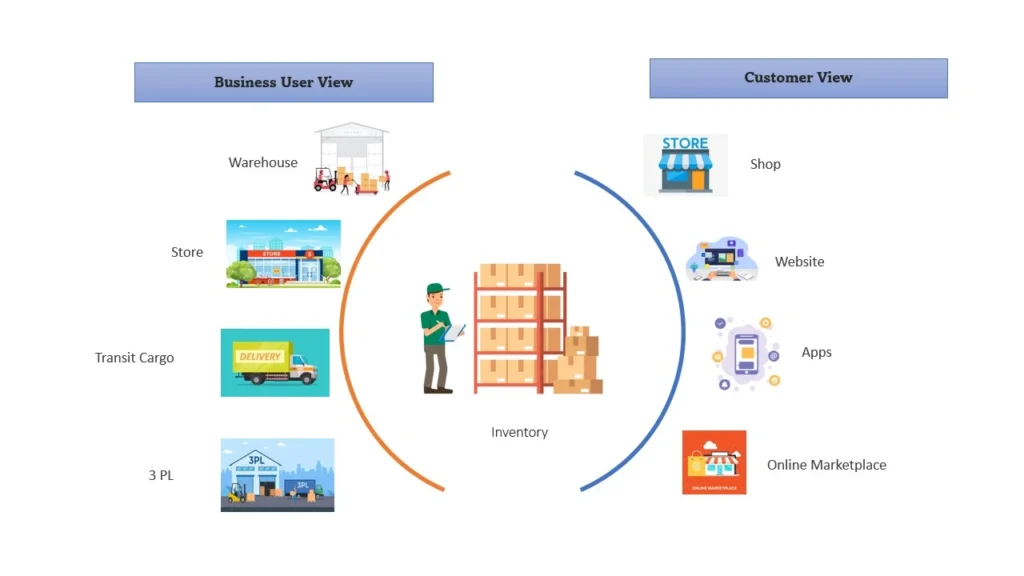With the changes brought to consumer expectations brought about by the pandemic, brands & retailers must now provide a seamless experience across multiple channels to remain competitive. One of the most crucial obstacles in achieving this is ensuring inventory visibility for customers and staff alike.
When consumers experience a lack of stock, it can put retailers in peril – ratings on the marketplaces sink and customers’ satisfaction plummets. But when it comes to inventory, an unfortunate reality is that often many retailers actually have visibility problems rather than actual out-of-stock situations.
But how do you improve that visibility? A single view of inventory – understanding what items are available, where they are located and how much stock there is at any given time – can help companies achieve this necessary visibility over their inventory. This kind of unified overview streamlines inventory-related tasks such as tracking stock levels, handling orders and more. Read on to learn more about what a single view of inventory is, why it’s beneficial for businesses, and how you can implement this technology into your own company’s systems.
What Is a Single View of Inventory And How Does It Work?
A single view of inventory is a consolidation of all inventory data from multiple sources and systems, providing a common record across the entire organization. It enables organizations to understand their consolidated stock level, available capacity, and potential utilization across channels. This single view provides organizations with the full visibility that is key to gain an end-to-end understanding of their supply chain operations for better planning strategies.
This single view is often attained through an order management system (OMS), which helps to create this single view by compiling data from across all channels into one system, functioning as an extra layer on top of existing systems.

This enables users to track sales and stock levels throughout their operations. With this real-time visibility over their entire inventory, businesses can accurately manage sales, plan for restocking needs, and optimize inventory usage decisions across all channels with ease.
How Can A Single View Of Inventory Benefit You?
Not having a single view of inventory greatly limits the ability for businesses to optimize their operations. With multiple systems and sources, inventory levels and product availability can be difficult to accurately track, particularly in-store, resulting in an overstocking or understocking of items. This prevents businesses from making the most of their resources, leading to decreased profits and customer dissatisfaction.
A single view of inventory:
- increases visibility, this data leads to improved customer experience and accelerated order fulfilment speeds.
- helps decrease costs associated with merchandising, forecasting, replenishment, management, and other areas within inventory operations.
- allows businesses to track and monitor their products more accurately, eliminating the need for manual stock-taking and reconciliation processes.
- provides businesses with real-time insights into their current stock supply as well as insights on potential sales.
By providing a single source of truth in data, an order management system contributes to an efficient and cost-effective business model that gives organizations the time and resources they need to focus on growth.
How Do You Achieve A Single View Of Inventory?
One of the main challenges that companies face in these situations is figuring out how to connect the various data points needed to build the single view. This means bringing information from different platforms and sources into one central location where it’s accessible and actionable. To ensure accuracy, businesses should seek solutions with powerful algorithms that can integrate data from multiple sources quickly and painlessly. Combining manual processes with automated solutions will help start the journey towards achieving a single view of inventory, enabling more accurate forecasting as well as streamlined shipments and orders.
A single view of inventory gives organizations real-time visibility into their entire operation. The benefits of implementing a single view are many and include reducing operational costs, improving customer service, and increasing sales. Establishing a single view of inventory can be a relatively fast process using the right technology combined with having access to people with the right expertise. If you’re ready to begin your journey towards achieving a single view of inventory, we’d love to hear from you. Get in touch with us today to learn more about what we can do for you.





